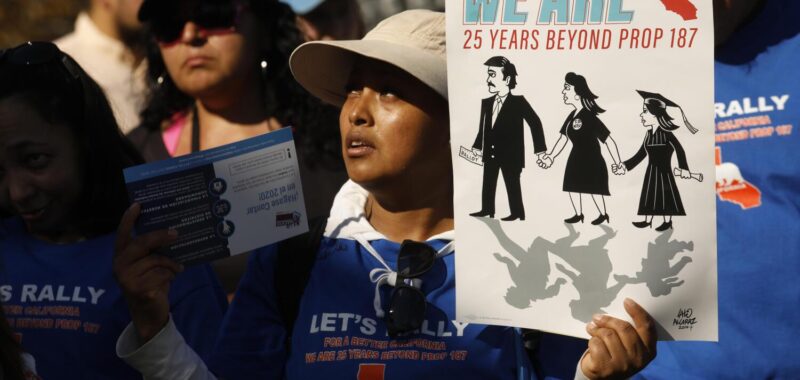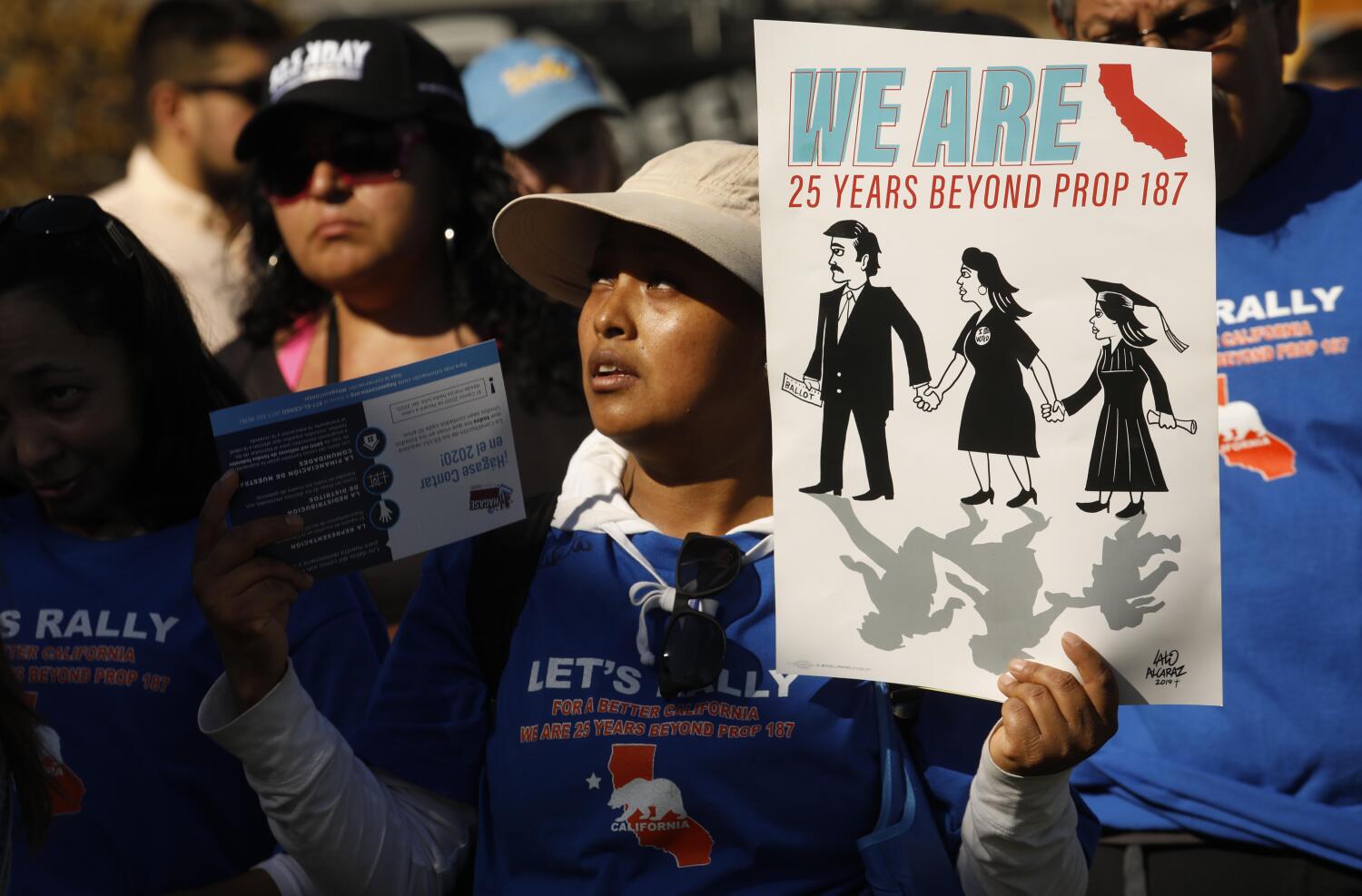The Democratic Party, and its presidential nominee Kamala Harris, should stop touting “border security” and offer a new approach to the immigration debate, one firmly rooted in American values of justice, opportunity and truth-telling.
The contrast with Donald Trump should be easy to sell: The former president is promising to enact the “largest mass deportation” in the nation’s history and issue an executive order denying birthright citizenship to any child born of residents who are in the country without papers. These actions would have a devastating impact on millions of people, many of whom have been in the United States for decades. It would wreak havoc on our economy, which is not just dependent on immigrants with and without papers, but bolstered by them. And it would tarnish beyond repair our moral standing as a human rights leader around the world.
While the Republican Party’s embrace of exclusion is frightening, equally troubling is the Democrats’ embrace of policies that falsely equate border security with more restrictive asylum regulations, including President Biden’s executive order in June that closes the border to asylum applicants when numbers reach certain limits. The hope seems to be that a somewhat less cruel approach than mass deportation will satisfy those sympathetic to immigrants but also pull some would-be MAGAistas away from the xenophobic abyss.
Harris seemed to play into this strategy with her now infamous 2021 remarks telling Guatemalans: “Do not come … If you come to our border, you will be turned back.” Although it may have been more a statement of fact than a threat, it revealed a serious lack of understanding about the forces leading migrants to leave their homes. It also hurt her — and the administration’s — credibility with immigrant communities; a “big blemish,” as a political scientist at UC Irvine told The Times. Her latest talking points — emphasizing drug cartel prosecutions and the border crackdown bill Republicans tanked earlier this year — lean in the same anti-immigrant-tinged direction.
So what should Harris say and do? To borrow her own emerging slogan, she should argue that “we are not going back” to divisive policies and “build the wall” attitudes. Tough talk against immigrants has a short political shelf life. We in California know this story first-hand.
This year marks the 30th anniversary of the state’s passage of Proposition 187 in 1994, a measure that sought to block undocumented immigrants in California from accessing basic, lifeline services — especially healthcare and public education for their children. It required every teacher, school nurse, firefighter and police officer to report anyone they merely suspected to be undocumented. The initiative was stayed and eventually deemed unconstitutional by federal courts, but even without going into effect it ignited a counteroffensive on behalf of all Californians.
Three decades later, California’s political terrain has shifted so significantly that the state has extended earned income tax credits, college tuition programs and health insurance to undocumented residents. Most significantly, it is now nearly impossible for an anti-immigrant candidate to win statewide office.
The move away from exclusion didn’t happen on its own. At first, it activated a tug-of-war between California moderates and progressives about how to push back against anti-immigrant fear and fervor, with some arguing for the defensive middle ground, similar to Harris’ stance now.
What prevailed instead was a grassroots effort to establish a multiracial, cross-sector coalition of support for commonsense policies in a sanctuary state. In just one example, when anti-immigrant jurisdictions began using traffic stops to criminalize non-citizens — upending families, communities and swaths of the economy, not to mention traffic — the coalition got Assembly Bill 60 passed, after a battle spanning more than a decade, in 2013, giving undocumented immigrants access to a special driver’s license.
Along the way the process proved the benefits of inclusion to the state. As The Times reported last week, international migrants have “lifted” the U.S. and California economies, filling and creating jobs and “pumping millions of tax dollars” into government coffers.
Indeed, Golden State politicians are now likely to remind their audiences that the state’s economy — the fifth largest in the world — is home to more than 10 million immigrants with $383 billion in spending power, and that 40% of the state’s entrepreneurs are immigrants. Even undocumented immigrants are a proven boon: At a national level, they contribute $13 billion more annually to the Social Security system than they will even be able to withdraw.
California’s shift away from Proposition 187 thinking can and should be exported nationally. It’s a ready-made opportunity for any political figure, but especially Harris and the Democrats, to look to the future.
Surveys show that despite the attacks on their very existence, immigrants and their children are largely optimistic, a sharp contrast to the dark tones of a MAGA movement that thinks America can only be great if it goes back to some mythical, all-white past. Harris should wholeheartedly embrace a more hopeful vision of America, one rooted in facts that prove the contributions of immigrants, instead of being tempted to in any way countenance Trump’s hate-filled agenda.
We are both the children of once-undocumented parents. We know that immigrants enrich our society, that the demonizing of newcomers is morally and factually wrong. A bold and brave commitment to inclusion will strengthen the United States, reflect the values of a democratic and diverse nation, and move us closer to realizing the American dream that so many, especially immigrants, aspire to.
Manuel Pastor is a professor of sociology and director of the Equity Research Institute at USC. Miguel Santana is president and CEO of the California Community Foundation.


